
Company News
How to Access New School-Based Nursery Funding
The first stage of the government’s plan to deliver 3,000 School-based Nurseries has begun - with applications now open for primary schools across England to apply for up to £150,000 each of the £15 million of capital funding that has been allocated to support up to 300 new or expanded nurseries.
With an application deadline of 19 December 2024, time is ticking for schools to get their request for funds in!
So, we thought it would be helpful to outline how to find out if your school is eligible for the SBN grant, how to apply for your share of the funds, and of course, how we at Pentagon can help you to get your new nursery provision off the ground!

We’d love to share with you a little bit more about who we are and what we do for schools and nurseries - and we’ll come to that later. First and foremost, let’s take a closer look at the key information that you need to know before applying for the new SBN grant funding.
What is the New SBN Funding For?
The School-Based Nursery (SBN) Capital Grant is a one-time grant available to eligible state-funded primary schools. It’s solely for capital expenditure, to create or expand school-based nursery provision by using surplus space within primary school buildings.
The Department for Education has projected that around half of local areas will need to increase their capacity by between 10% and 20%, with around 70,000 additional places and 35,000 early years educators still required to meet demand for September 2025 - when working parents of all children under the age of 5 will be able to access 30 hours of ‘free’ childcare per week.
School-based nurseries play a crucial role in the Early Years sector - they made up 20% of registered Early Years childcare places in 2023. SBNs provide a greater share of places in the most deprived areas of the country, and according to government figures, serve a higher proportion of children with Special Educational Needs compared to private group-based providers.

The DfE has stated that while all parts of the sector are valuable to delivering the quality care that children need, schools are at the heart of communities. SBNs currently have a proportionally lower turnover, and the benefit of the option to transition staff more easily between nursery, reception and early primary classes. Their aim is to work with the Early Years sector to attract more people to a career in Early Years education.
Speaking of the need for this new funding, Education Secretary Bridget Phillipson said:
All children should have the opportunity of a brilliant early education, no matter who they are, where they’re from or how much their parents earn. New school-based nurseries will provide thousands of additional places where they are needed most, plugging historic gaps and making sure geography is no barrier to high quality childcare.
Providers and schools wishing to apply for the funding are being urged to work closely with local authorities to outline how their individual proposals will respond to local needs, the aim being to break down barriers to opportunity for children across the country. So that the programme is delivered in a way that continues to support vulnerable children and builds on the provision of the existing market, the funding will be available to projects that are school-run, or delivered by private and voluntary providers, or by childminders.
Paul Whiteman, General Secretary of the school leader union NAHT said:
“School-based nurseries play a vital role in the early years sector. It makes sense that where there is spare capacity in schools and demand in the local area, that the government looks to expand school-based provision.
It will be important that interested schools are well supported through this process, both practically and financially, and that the government continues to focus on building a strong and sustainable early years workforce.
We would encourage schools that are ready to expand or open a nursery to apply for this grant, and for those who may be interested in the future, to register their interest with the DfE.”
Who Can Apply for the SBN Funding?
State-funded primary schools in England who already offer some early years education, such as a reception class, can apply for the grant to open a new nursery provision or to expand their existing nursery provision.

Their project MUST use surplus space in the school building (including at primary-phase satellite sites) AND should aim to be operational in the 2025 to 2026 academic year. However, if applicants anticipate needing a little longer to make best use of resources and minimise disruption, there is an option for them to provide justification for this in their application.
SBNs can be, for the purposes of the grant:
- nursery classes embedded in a school
- nursery units led by governors or academy trusts
- childminders, or private, voluntary, and independent nurseries that are contracted to deliver nursery provision on a school site, or to operate on a school's behalf
ANY responsible official representing your school, such as a school or multi-academy trust leader, can submit the bid.
The DfE has stated that maintained nursery schools and special schools are NOT eligible to apply for the funding, because they don’t have any spare space created by declining primary school rolls.
In order to qualify for the grant, your school’s project needs to meet ALL of the eligibility criteria listed within the application form. It must have the support of your local authority, and any relevant consents from your landlord or freehold landowner must be obtained.
How Do I Apply for SBN Funding?
All applications for SBN funding must be submitted online via your DfE sign-in account. You can find the full government guidance and online application form.
Schools must submit their application, including all supporting documents, via the online application service, by midday on 19 December 2024.

As part of your application, you will be asked to provide detailed information about your project plans and how you intend to allocate the funds. The form asks for a brief description (maximum 750 words) of the overall project, the scope of the work, necessary construction and equipment costs, and why capital funding is needed to deliver the project.
Schools are asked to demonstrate that they have considered various options, and that the chosen solution is the most effective and the best value for money.
When you have filled in the application form, you will be asked to upload the following mandatory documents:
- floor plans and scope of work
- photographs
- cost plan or assessed competitive quotation
- summary of consultation and responses (if applicable)
How Can SBNs Spend Their Grant Funding? Are There any Restrictions?
SBNs can apply for up to £150,000 of funding that must be used solely for capital expenditure, to repurpose surplus space in a primary school building to make it suitable for nursery provision.
This CAN include:
- conversion of a building within the school estate
- renovations, refurbishments and refits of existing school space into nursery provision, including works required to meet any SEND requirements
- upgrading or carrying out alterations to essential systems like heating, plumbing, fire alarm and electrical, where this is needed within affected space to support the expansion or opening of a nursery
- purchasing new physical assets for the nursery (to be considered capital expenditure, the asset must bring an economic benefit and be able to be of sufficient value to be depreciated over more than one financial year, for example, computer equipment and furniture)
- improving outdoor spaces, such as playgrounds, or flow between indoor and outdoor space, where this is part of the nursery provision
- project team Technical Advisor fees and survey costs
All capital works undertaken must be compliant with relevant statutory and regulatory requirements.
Specific eligible costs also include:
- Installing an external canopy to allow for outdoor play
- Installing suitable fencing to provide safe and secure external play space
- Purchasing furniture and equipment to allow the nursery to function properly
- Updating the existing finishes (e.g. flooring and surfacing) to those more suitable for a nursery
The DfE will only fund the amount requested on your bid application form up to £150,000 - but schools ARE allowed to use additional funding sources alongside the grant to complete their project.
The DfE has highlighted the importance of thoroughly assessing the suitability and condition of your surplus space, including evaluating whether the current facilities meet the needs of the proposed nursery and if they can be adapted effectively.

As part of this, schools need to consider factors such as value for money, structural integrity, location on the school site, accessibility, and the potential for creating a conducive learning environment for children in early education, in line with the Early Years Foundation Stage statutory requirements.
This is where we can help you! We offer a free on-site planning and design consultation with one of our expert education consultants as standard for all of our potential customers - if you would like us to come and see you, please do Get in Touch and we’ll be there at a time to suit you.
When Should I Apply?
The time is now! The application window opened on 17 October 2024, and will close at midday on 19 December 2024.
Be aware that you may need to factor in time for consultations to take place. In certain circumstances, in order to apply for the SBN Capital Grant, the DfE has specified that a project must have undergone a consultation for a minimum of 3-4 weeks with interested local parties. This usually applies where:
- academy schools are adding a new nursery (and therefore lowering the age range of the school), expanding existing nursery provision by more than 30 places, or reducing the capacity of the school by more than 30 places to accommodate the new or expanded nursery; or
- schools maintained by local authorities are adding a new nursery (and therefore lowering the age range of the school), expanding existing nursery provision beyond the thresholds set out in Making Significant Changes (‘prescribed alterations’) to maintained schools guidance, or reducing capacity of the school by 30 places or more to accommodate the new or expanded nursery.
Project Timelines
All projects must aim to be operational by September 2025, with project timelines specifically needing to factor in time for:
- consulting with the local authority and/or any local interested parties on the project proposal
- obtaining any necessary approvals and consents for an operationally ready learning space
- ensuring procurement complies with public regulations and your organisation’s policies
- checking the suitability of technical advisors or contractors, including their experience in the education sector, site staff experience, financial health, and safety record
- intrusive surveying of building elements like services, structure, and asbestos
- managing health & safety requirements at each stage
The Dfe is expected to notify schools of the outcome of their application, with grant letters issued to successful bidders, during the spring of 2025.
If Successful, Is There a Deadline for Spending Funds Granted?
Yes!
All grant funding awarded must be spent by 31 March 2027. The DfE has stated that if the funded activities are not completed by 31st March 2027, it reserves the right to exercise clawback proceedings.
How Pentagon Can Help to Establish Your Outstanding Nursery Provision!
Having access to a great outdoor play and learning environment is absolutely essential for nursery-age children, and forms one of the cornerstones of every good nursery provision.
Daily access to fresh air and nature, with opportunities for young children to be physically active, to develop and learn new skills, to explore, to learn how to interact and socialise with others, and of course to be free to play, is paramount.
For many children, their nursery environment is their main point of access to regular outdoor play. And so a nursery’s outdoor space is a vital consideration when it comes to creating a conducive learning environment for children in early education in line with the EYFS statutory requirements.
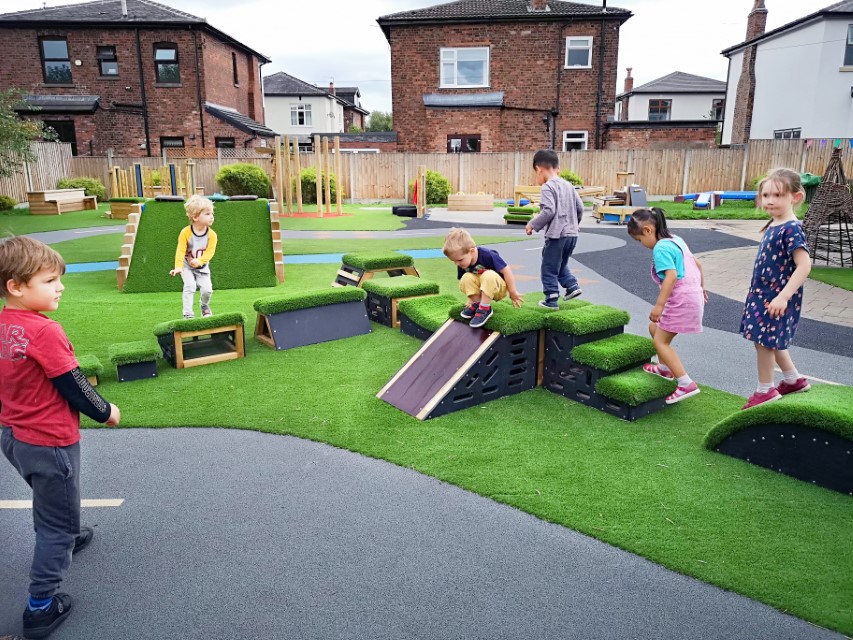
We have been working with primary schools and nurseries across the UK to deliver outstanding outdoor learning environments for over 25 years.
As the UK’s number one school playground equipment specialist, we have a broad depth of experience when it comes to helping nurseries to plan and implement their outdoor learning programmes - ensuring that their spaces are capable of supporting all of the EYFS areas of learning, and make the very best use of available space year-round.
We have everything that you need to create the ideal, maximum value for money, robust, high quality and sustainable outdoor play and learning environment for your new or expanding nursery.
Our Extensive Range of Playground Products
We specialise in All-Weather Playground Surfacing suitable for little legs to crawl, climb and bound around on whatever the weather!
We design, supply and install practical and beautiful Outdoor Classrooms and Canopies for all your indoor to outdoor free-flow needs.
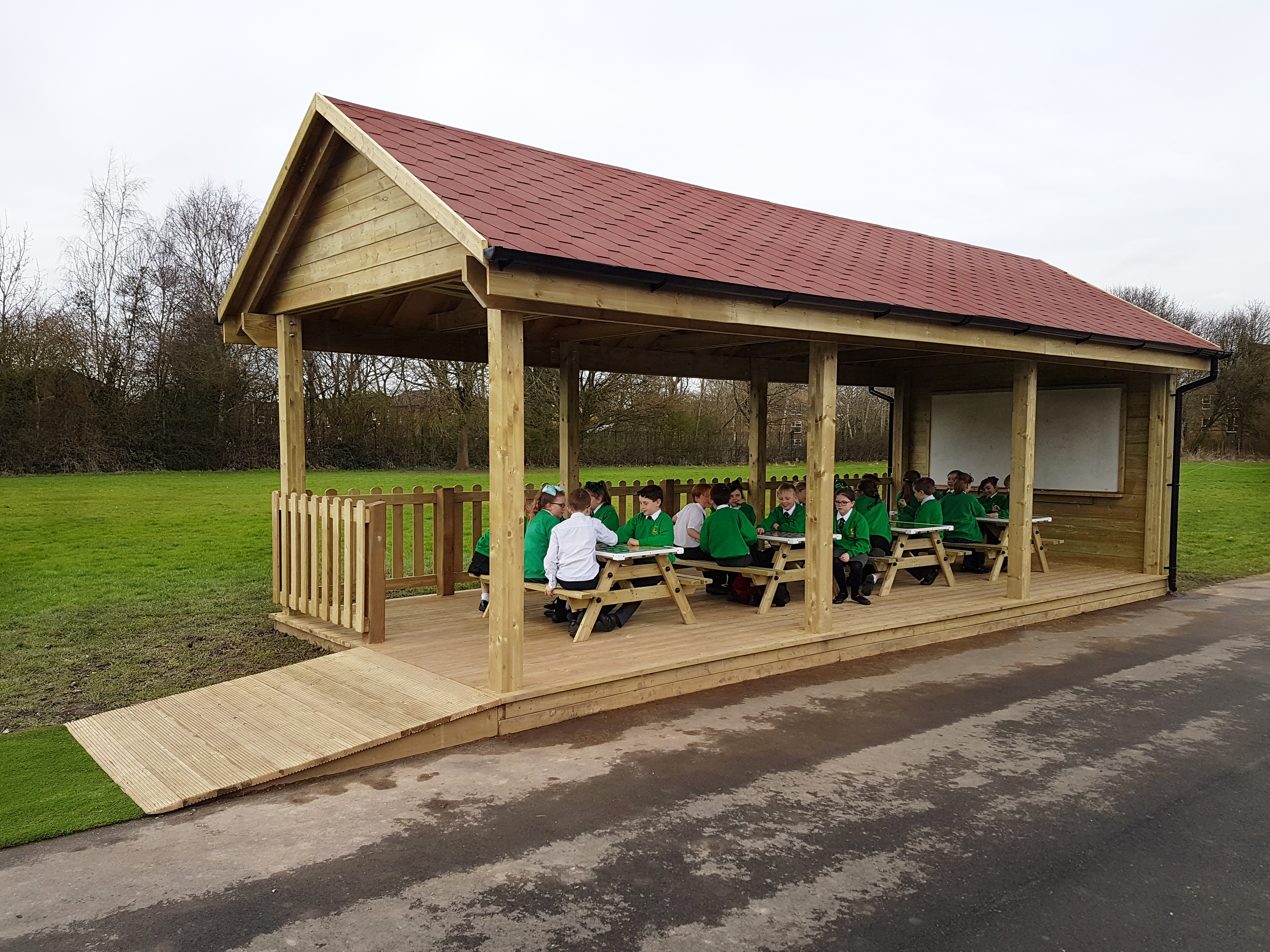
Amongst some of our favourite nursery products, we have a fabulous range of low-level active play and climbing equipment for excellent physical development, and a unique and popular collection of easy-maintenance messy and sensory play equipment for inquisitive little hands and minds to explore!
Our Choice of Nursery Classroom Furniture
We are now also working in collaboration with Millhouse Early Years Furniture Solutions to bring you all the classroom furniture that you could possibly need for your new nursery - all available for fully-assembled delivery simply by ordering from our Online Shop!
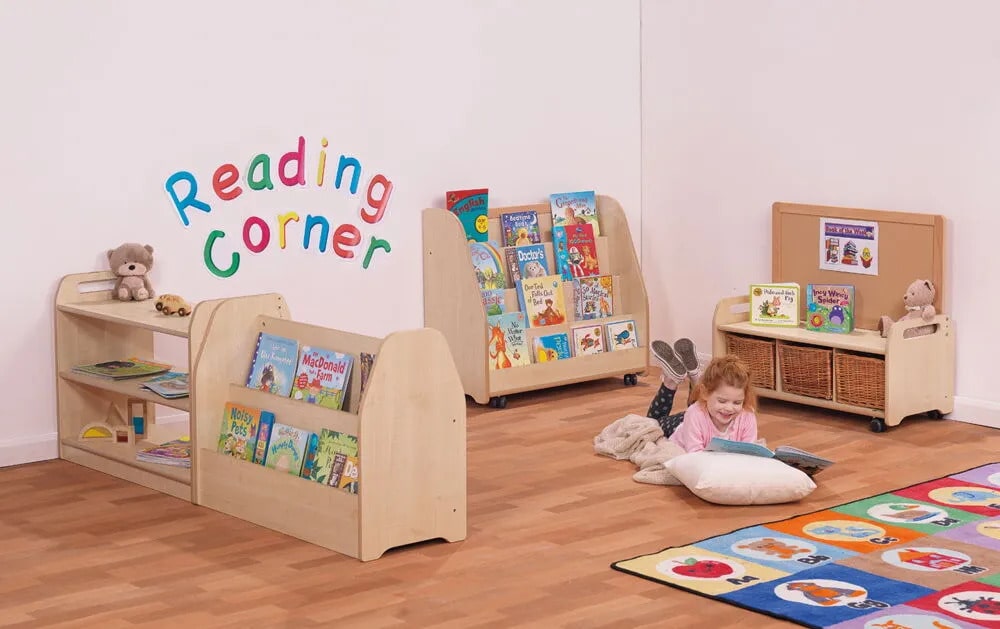
Our Depth of Experience and Project Management Service
We’re absolutely here to help you along the way. With our extensive experience working within the education sector, we understand individual challenges that schools and nurseries face when it comes to delivering projects, and within specific timescales.
We allocate a dedicated playground consultant to work with you and your nursery, from the first free on-site consultation, through concept and design planning to completion - and we like to stay in touch with our aftercare service as standard to ensure that your playground is exactly as you want it to be.
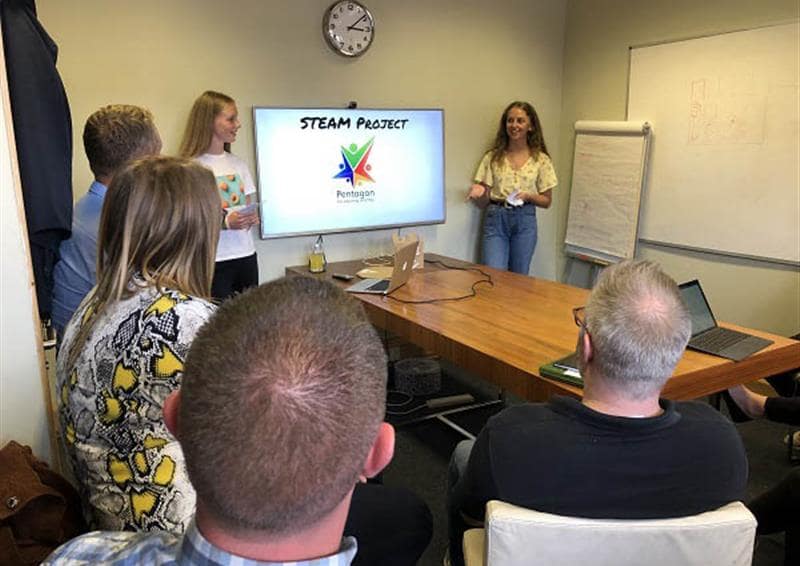
Expert, Value for Money Playground Installations
Demonstrating best value for money is going to be a key part of your SBN Grant application. We are experienced in advising on best-use of outdoor spaces for year-round play and learning to suit an individual school or nursery’s specific needs and requirements, taking into account factors such as landscape and local geography too.
We have a proven track record of delivering the best value for money for our customers - you can see what they have to say and take a look at some of our exciting nursery-based outdoor learning projects.
Guarantees and Regulatory Requirements
All of our playground products come with guarantees, and we are well-versed in the rules and specifications around compliance with statutory and regulatory requirements - this is as crucial to our business and our installations as it is to your nursery.
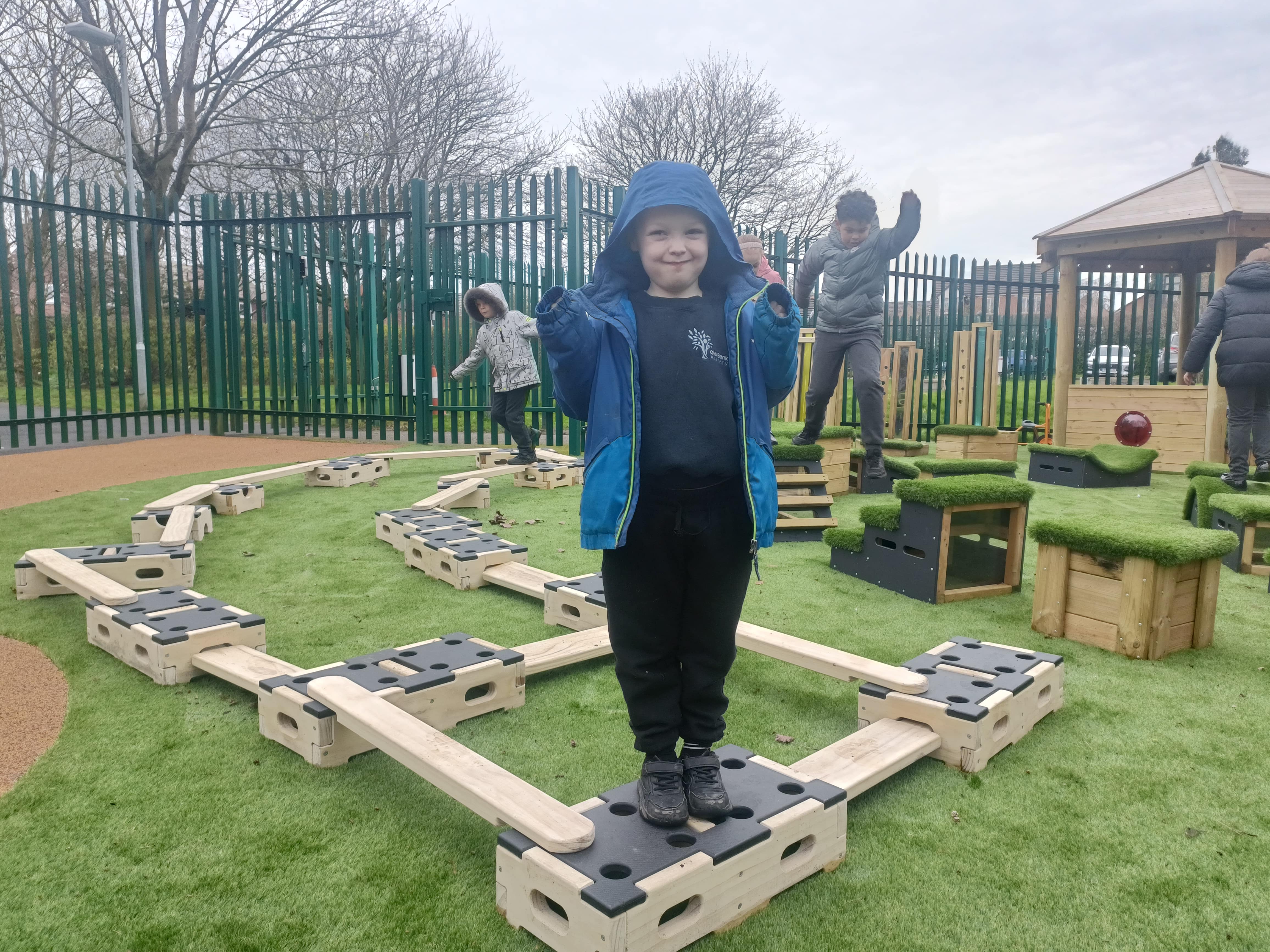
We can help with providing your breakdown of project costs and plans required as part of your grant application. We will provide comprehensive overviews and detailed quotes for your nursery garden or playground project, along with 3D visualisations, and we always communicate our proposals clearly and promptly.






